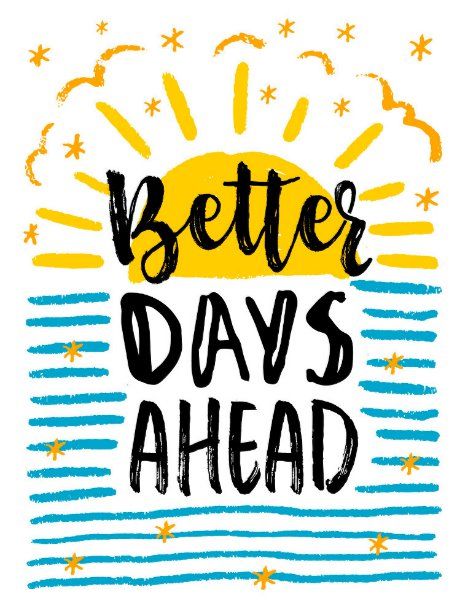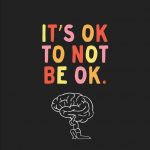If there is one thing that needs to be recognized more about the state of depression, it is that the experience and symptoms vary between everyone who suffers from it or is currently struggling with it. In this article, I’ll explore with you the widespread problem of smiling depression, especially among teens, and the ways it can be lifted. As you grow, expectations rise and experiences grow, and especially in the midst of a global pandemic, taking care of your mental health is of great importance. Smiling Depression is a disorder that few people know about, but which creates extreme effects on many lives around the world.
To begin with, the main signs include lethargy and prolonged feelings of sadness or hopelessness. These are the top three symptoms known to people around the world, but many medical professionals point out that some other common symptoms include:
- Changes in appetite or weight
- Sleep patterns change or have trouble sleeping
- Low self esteem and self esteem
- Lack of interest in subjects or activities that one enjoyed
“Smiling depression,” however, isn’t recognized as a condition on its own, according to Healthline, because it could be diagnosed as a depressive disorder with irregular symptoms. Healthline describes smiling depression as:
“‘Smiling Depression’ is a term for someone living with depression on the inside while appearing perfectly happy or content on the outside.”
What is the difference between stereotyped and smiling depressive disorders?
Typically, the difference lies in the display of each individual with this mental illness. Maybe you have a friend who is always tired, low on energy, and constantly unenthusiastic about a sport or hobby they once obsessed over. These aren’t the only signs of depression, and you shouldn’t make a diagnosis without the help of a medical professional.
People with smiling depression often display a facade that suggests their life is “built up” or that they are relatively happy, normal, and mentally well. This makes it much harder to spot and notice, especially if you’re not incredibly close to someone. Friends who can observe changes in appetite, eating and sleeping patterns, and general interest levels may have a better understanding of the disorder simply because they have seen the change occur despite the happiness that person continues. demonstrate.
If the person is you, however, you are not alone. As many who suffer from smiling depression choose to hide their symptoms and difficulties from others, it is very difficult to tell how common it is.

Why might people choose to put on this facade?
For many, there are a variety of reasons as to why they want to cover up their depression. Here is a list of the most common reasons according to health professionals and psychologists:
- Showing signs of depression can seem like a weakness
- Feeling like you would be a burden if you opened up to others
- Pretending you don’t have depression at all, acting like you’re “fine”
- Justifying by saying that others have it worse, asking: What do I have to complain about?
- Thinking the world would be better off without your problems
For many teens going through tough years in high school in particular, putting aside depression and feelings of hopelessness because others have it worse is one of the most familiar and seemingly justifiable arguments for why they’re hiding. their depression. But comparing your backgrounds and emotions to completely different human beings is no way to decide whether you should ask for help.
Your mental health is yours alone, and depression doesn’t just stem from difficult situations at home or school. Sometimes the pressures of work alone can endanger your mental health. Even the weather can play a part in this; having too much sun, rain or cold weather increases the risk of mental illnesses such as depression.
Invalidating these feelings with thoughts such as the ones included above are additional signs of diminished self-esteem, and making the decision to seek help from a professional or even a friend can go a long way.
How can you rise?
Everyone’s comfort methods are very different, but if there’s something you enjoy doing, even something as simple as playing albums on a loop, I recommend you give it a try. The first and most important thing to do is to seek help, whether it’s talking to a family member or a mental health professional. Seeking therapy can be extremely helpful.
Still, there are smaller daily activities that can help with relief. If you’re out of ideas, here are a few!
Listen to Marconi Union’s Weightless
This song has been proven to lower anxiety levels, and after listening to it myself, you can feel this incredible shift from butterflies in your chest at the start to serenity at the end. It doesn’t eliminate everything, but if you’re panicking or feeling hopeless, it helps bring awareness back to the present moment.

Read (or watch) a Pick-Me-Up
While not a permanent fix or much more than a distraction and obviously a pick-me-up, for those suffering from smiling depression, passing the time with a snack and a movie/novel can uplift their mood or trigger mood swings. other motivations and ideas. Many uplifting stories involve the growth of someone struggling and can also ease the feeling of being alone in a situation.

Take a bath with bath salts or bath bombs
A fragrant soap, bath bomb or the equivalent of Epsom salts can help to relax. At the same time, a bath encourages self-care, something people with depression often lose sight of and struggle to accomplish on a daily basis. Watching a bath bomb slowly melt in the bath, exploding with color is also relaxing and mesmerizing. There’s a beauty about it, as well as the fragrance that fills the air. Also, a hot bath or an ice bath are extremely helpful for recovery for their own reasons.

Play a board game with your loved ones
Do you know those few people you reach out to? Spend time with them as much as you can, show them your appreciation. Even though you may feel like you don’t have any, or none of them notice. It’s a major struggle with smiling depression, the idea that no one has noticed your struggle because of the mask you wear every day. It is not necessary to openly tell everyone your feelings, and seeking professional help is of greater importance. However, challenging yourself to go out (or stay home!) with your friends for a casual game or two will pay off indefinitely.

Download Headspace
Headspace is a free app that you can download from the App Store or Google Play! It requires a simple registration with an e-mail and a password, but it is up to you to create your user to use the application and all its advantages. Headspace compiles the most useful, relaxing and mindfulness activities, including music and meditation, that it offers you on the app! There are meditations to help with sleep, anxiety, and more.
Other ways to uplift yourself include dancing, exercising in any form, a healthy new meal, or trying a new hobby! You never know what might capture you and your attention, and what might bring joy to your life. My final suggestion is to find help wherever it may be. The number of phone numbers and sites providing advice and support is too broad and exclusive to countries around the world. So the best tactic is to search for resources near you or visit government sites that can provide you with useful links!
You are not alone and reaching out is worth it. We’ve got you covered – always remember that.








